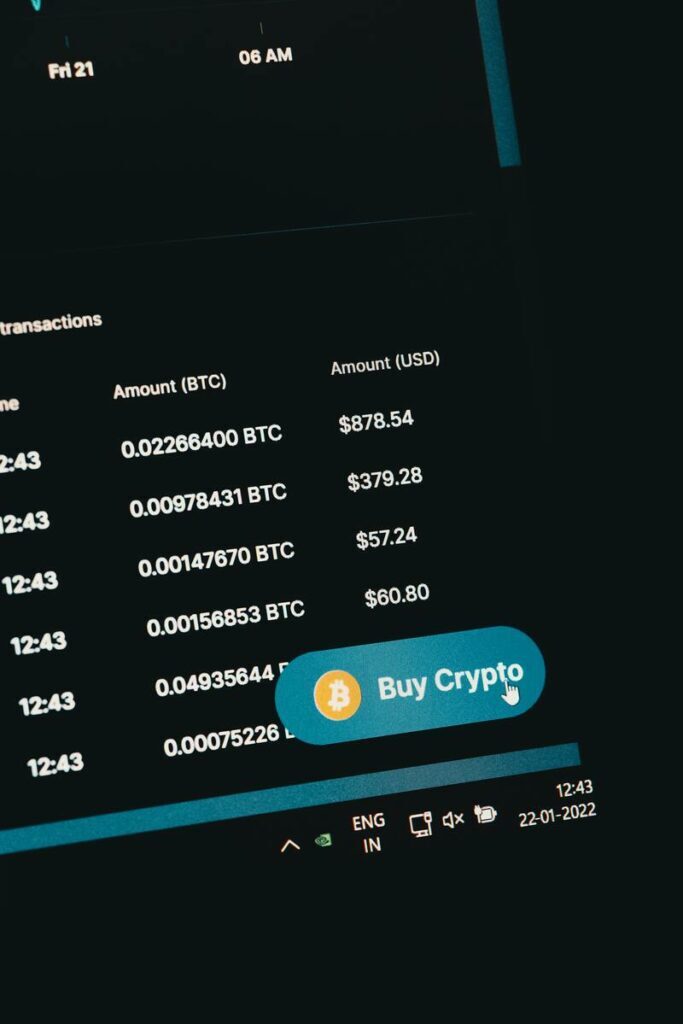Many international investors are looking to invest in Luxembourg to take advantage of the country’s stable and business-friendly environment, tax advantages, and investment options.
A country located in Western Europe, Luxembourg has a thriving economy despite its small size. It is a popular destination for investors because of its stable and business-friendly environment.
The country has a highly skilled workforce and a strong infrastructure, making it an attractive location for companies to set up operations. It also has a well-established financial services sector and is home to many major banks and investment firms.
Luxembourg also has a favorable tax environment, with low corporate and personal income tax rates. The country has a number of tax treaties and double taxation agreements in place with other countries, making it an attractive location for international investors.
In terms of investment options, Luxembourg offers a wide range of opportunities. The country has a thriving stock market, with many major companies listed on the Luxembourg Stock Exchange.
Additionally, the country has a well-developed bond market and a growing ETF market. It is also a hub for alternative investment options, such as private equity and real estate.
A strong economy, a range of investment options, an advantageous tax environment, and a strategic location at the heart of Europe make it an attractive destination for investors looking to diversify their portfolios.
If you are looking to invest as an expat or high-net-worth individual, which is what I specialize in, you can email me (advice@adamfayed.com) or WhatsApp (+44-7393-450-837).
What are the investment opportunities in Luxembourg’s growing sectors?
Luxembourg has a diverse and growing economy, with several industries and sectors currently experiencing growth.
For one, the financial technology sector in Luxembourg is booming, with many FinTech companies and start-ups setting up operations in the country. The country’s highly skilled workforce and favorable regulations drive this sector.
Luxembourg also has a well-developed logistics infrastructure, with many major companies operating in the country. The sector is driven by the country’s strategic location at the heart of Europe, making it an ideal hub for logistics and supply chain management companies.
The country has also become a space and satellite industry hub despite its size. Investment opportunities in this sector include investing in companies that provide satellite-based services and technologies, such as remote sensing and satellite navigation.
Luxembourg has also recently set ambitious targets to become carbon-neutral by 2050 and is investing heavily in renewable energy. This sector is driven by government support and private investment in sustainable energy.
Meanwhile, Luxembourg’s real estate market is also growing, driven by the country’s stable economy and low unemployment rate.
The increased adoption of online shopping in the country also led to the growing e-commerce sector in Luxembourg.

What are the top platforms to use to invest in Luxembourg?
Luxembourg offers a wide range of investment platforms, each with its own fees, services, and investment options. Some of the top investment platforms in Luxembourg include:
Degiro
This platform offers a wide range of investment options, including stocks, bonds, ETFs, and Options.
One of the main advantages of Degiro is its low fees, which make it an attractive option for cost-conscious investors. Additionally, it offers a user-friendly interface and commission-free trading on some products.
However, Degiro is not a full-service broker, so it only offers features that other platforms offer, such as investment advice or research. Its customer support is also limited in certain countries if you invest outside the country.
This platform is a global brokerage that offers stocks, options, futures, and currencies, among others.
It offers access to multiple markets, including Luxembourg. It is known for its advanced trading tools and low fees.
But, Interactive Brokers may not be the best option for novice investors, as its platform can be complex to navigate. It also has higher account minimums than some other platforms.
Saxo Bank offers a wide range of investment options, including stocks, options, futures, and forex, and is known for its advanced trading tools and research capabilities.
This platform offers a user-friendly interface and is available in multiple languages.
However, it has higher fees than other platforms, which may make it less attractive for cost-conscious investors. It also does not offer crypto-currencies trading.
Binance
This platform is one of the largest cryptocurrency exchanges in the world. It offers a wide range of cryptocurrencies and is widely used and available in Luxembourg.
However, it only strictly deals with cryptocurrencies and does not offer other types of investment options. It is also not regulated in Luxembourg, which may concern some investors.
BIL and BCEE
Banque Internationale à Luxembourg (BIL) and Banque et Caisse d’Epargne de l’Etat (BCEE) are well-known banks in Luxembourg that offer investment services.
They offer savings accounts, term deposits, bonds, and more. They are heavily regulated and offer high security for the customer’s funds.
Their trading platforms, however, may not be as advanced as other platforms. They also offer limited investment options and charges fees that are usually higher than the others.
PostFinance
This platform is a subsidiary of Swiss Post, offering a wide range of investment options such as stocks, bonds, ETFs, and more.
Same with BIL and BCEE, it offers its customers security for their funds and a user-friendly interface.
As a trading platform, it can need to be faster in adapting to innovation and modern features.
What are the investment options on Luxembourg platforms?
Luxembourg-based investment platforms offer a wide range of investment options for investors.
Many Luxembourg-based platforms offer access to stocks listed on the Luxembourg Stock Exchange and other major stock exchanges worldwide. Investors can buy and sell shares in companies and participate in their potential growth.
They also offer access to bonds issued by governments and companies. Bonds are debt securities that pay interest to the bondholder and return the principal when the bond matures.
Exchange-traded funds (ETFs) are also usually available. These are investment funds that are traded on stock exchanges, like stocks. ETFs track the performance of an index, a commodity, bonds, or a basket of assets like an index fund.
There are also Options available for investors. Options are financial derivatives that give the buyer the right, but not the obligation, to buy or sell an underlying asset at a specified price on or before a specified date.
These types of investments can be used to hedge against market risk, increase income or speculate on market movements.
Some platforms like Binance offer access to cryptocurrencies such as Bitcoin, Ethereum, Litecoin, and more.
A lot of the platforms also offer Futures. These are financial contracts that obligate the buyer to purchase an asset or the seller to sell an asset, such as a commodity or a currency, at a predetermined future date and price. Futures are used for hedging or speculating on price movements.
There are also those that provide access to real estate investments, such as REITs or direct investment in properties.
Finally, some platforms allow investing in private equity funds. It will enable investors to invest in privately held companies that are not publicly traded.

How to choose the right investment platform for you?
Choosing the right investment platform in Luxembourg can be challenging, as there are many options available, each with its own set of fees, services, and investment options.
The first step is to identify the investment options that are important to you. For example, if you’re interested in stocks, you’ll want to look for a platform that offers access to a wide range of stocks.
Similarly, if you’re interested in bonds, look for a platform that offers access to a wide range of bonds.
Another important factor to consider is the fees charged by the platform. Some platforms charge higher fees than others, so it’s important to compare the fees charged by different platforms and choose one that offers competitive rates.
Consider the services offered by the platform, such as research, educational resources, and customer support.
Some platforms offer more extensive services than others. Also, consider if the platform has a user-friendly interface and is available in your language.
It is also important to ensure the relevant authorities regulate the platform and that it has robust security measures to protect your investment.
Research the reputation of the platform. Look for customer reviews, testimonials, and ratings.
Check if the platform has any history of fraud or regulatory issues. Ensure that the platform complies with all relevant tax laws and regulations.
Lastly, consider your investment goals and risk tolerance. For example, a platform that offers a wide range of investment options may not be suitable for a conservative investor.
Consider the minimum investment required and if the platform suits your budget.
Ultimately, the right investment platform for you will depend on your individual needs, so it’s important to research and compare the platforms.
It is also recommended to consult with a financial advisor to ensure that the chosen platform aligns with your overall financial plan.
What are the tax considerations for investing in Luxembourg?
Luxembourg has a favorable tax environment, with low corporate and personal income tax rates. However, there are certain tax considerations that investors should be aware of when investing in Luxembourg.
For one, corporate income tax in Luxembourg is levied at a rate of 17%. However, this rate can be reduced to as low as 6.75% for companies that meet certain conditions, such as investing in research and development.
Meanwhile, the capital gains tax in Luxembourg is levied at a rate of 28%. However, certain exemptions and reductions may apply, such as for gains on the sale of shares in certain qualifying companies.
The standard VAT rate in Luxembourg is 17%, but there are also reduced rates for certain goods and services.
Luxembourg also has several tax treaties and double taxation agreements with other countries. These agreements can avoid or reduce the double taxation of income and capital gains.
To be considered a tax resident in Luxembourg, an individual must spend at least 183 days in the country during a calendar year or have their main residence in the country.
Tax residents are subject to Luxembourg income tax on their worldwide income, whereas non-residents are only subject to tax on income generated in Luxembourg.
The country is also a member of the European Union. It has, hence, adopted the Common Reporting Standard (CRS) and the Foreign Account Tax Compliance Act (FATCA), which automatically exchange information on financial accounts and assets between countries.

What are the security and regulation environment in investing in Luxembourg?
Luxembourg has a strong regulatory environment and a well-established legal system designed to protect investors from fraud and financial crime.
The country’s financial regulator, the Commission de Surveillance du Secteur Financier (CSSF), is responsible for supervising and regulating the financial sector in Luxembourg.
It is also responsible for ensuring that financial institutions operating in Luxembourg comply with all relevant laws and regulations, including anti-money laundering (AML) and countering the financing of terrorism (CFT).
CSSF also enforces investor protection regulations and ensures that investors are provided with accurate and timely information about the products and services offered by financial institutions.
So far, the CSSF has implemented several measures to protect investors from fraud and financial crime, such as requiring financial institutions to have robust AML and CFT programs and to conduct regular audits and risk assessments.
It has also established a dedicated Investor Protection Unit (IPU) to protect investors from fraud and financial crime.
In Luxembourg, financial institutions are also required to implement robust cybersecurity measures to protect against cyber attacks and to report any cyber incidents to the CSSF.
The CSSF has established a dedicated Cybersecurity Unit to monitor and assess cybersecurity risks and provide guidance and support to financial institutions on protecting against cyber attacks.
The CSSF also has a complaint handling procedure to handle investors’ complaints. If necessary, the CSSF will investigate complaints and take appropriate action, such as imposing fines or sanctions.
Investors can also file a complaint with the Ombudsman for Banking Services and Investments (OBPI) if they are not satisfied with the outcome of their complaint.
Depositor protection schemes are also in place to protect depositors’ funds in case of a bank failure. The deposit guarantee scheme in Luxembourg is run by the Deposit Guarantee and Resolution Fund (FGDR). It covers all deposits up to €100,000 per depositor and per institution.
As a member of the EU, the country also cooperates with other regulatory bodies, such as the European Securities and Markets Authority (ESMA) and the European Banking Authority (EBA), to ensure that financial institutions operating in the country comply with EU-wide regulations and standards.
Luxembourg also cooperates with international financial regulators and organizations, such as the Financial Action Task Force (FATF), to combat money laundering and financial crime.
Conclusion
In conclusion, Luxembourg is a popular choice for investors due to its stable economy, low tax rates, and well-established financial sector.
The country offers a wide range of investment options, and investors can choose from various platforms that offer different investment options, fees, and services.
However, choosing the right investment platform in Luxembourg can be challenging. It’s important to research the investment options, compare the fees, consider the services offered, check the regulations and security, and look at the platform’s reputation.
Additionally, it’s important to align the chosen platform with your investment goals and risk tolerance, be aware of the tax laws and regulations that apply in Luxembourg, and consult with a financial advisor.
With the right research and guidance, investors can find the best platform to invest in Luxembourg and achieve their financial goals.
Pained by financial indecision? Want to invest with Adam?

Adam is an internationally recognised author on financial matters with over 830million answer views on Quora, a widely sold book on Amazon, and a contributor on Forbes.



